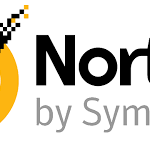 Online threats continue to grow as hackers develop advanced techniques. Today’s threats go beyond computers getting infected with viruses. In addition to viruses, devices connected to the internet are susceptible to malware infections, stolen data and identify theft. Microsoft is the most popular software for operating systems, making Windows-based devices particularly vulnerable to hackers. Since so many people use Windows, hackers create viruses and malware that can potentially infect millions of machines, which offers them access to a vast amount of stolen data. In short, everyone using a Windows-based computer is at risk of having their information corrupted or stolen, and possibly having their identity stolen as well. The only way to protect your information is to secure your device with internet security software.
Online threats continue to grow as hackers develop advanced techniques. Today’s threats go beyond computers getting infected with viruses. In addition to viruses, devices connected to the internet are susceptible to malware infections, stolen data and identify theft. Microsoft is the most popular software for operating systems, making Windows-based devices particularly vulnerable to hackers. Since so many people use Windows, hackers create viruses and malware that can potentially infect millions of machines, which offers them access to a vast amount of stolen data. In short, everyone using a Windows-based computer is at risk of having their information corrupted or stolen, and possibly having their identity stolen as well. The only way to protect your information is to secure your device with internet security software.
New Windows-based devices come with Windows Defender already installed, which offers users some level of internet security protection. If you are a casual internet user, someone who just checks email and does a little browsing, Windows Defender will be adequate. You will want to turn on the Windows Firewall for more protection. The firewall offers packet sniffing, which will help keep hackers out of your computer. However, if you are someone who uses the internet a lot, especially for banking, social media and online games, you need a greater level of protection than Windows Defender can offer.
 The company Symantec creates a line of anti-virus and internet security packages under their brand, Norton. The basic version covers virus protection, while the more expensive versions include comprehensive internet security (malware protection, email scanning, and firewall). Symantec also creates a program called Norton Utilities, which helps keep your computer running well. Millions of computer users choose Norton Internet Security to protect them online.
The company Symantec creates a line of anti-virus and internet security packages under their brand, Norton. The basic version covers virus protection, while the more expensive versions include comprehensive internet security (malware protection, email scanning, and firewall). Symantec also creates a program called Norton Utilities, which helps keep your computer running well. Millions of computer users choose Norton Internet Security to protect them online.
McAfee is one of the oldest internet security companies. Many computer brands come with McAfee Internet Security already installed. However, this is usually only for a limited time. If users want to keep it, they must purchase a license. Doing so allows them to test the program, before deciding to buy. Some people do have issues with McAfee, so you will want to do some research.
 Finally, Kaspersky Internet Security offers top-notch online protection. Kaspersky is increasing in popularity because it’s well-respected by internet security experts. In fact, the brand has won several awards from top technology experts and publications. A few years ago, Kaspersky was not that well-known in the United States. However, you can now find it at most major retailers (Walmart, Target, Best Buy, etc.).
Finally, Kaspersky Internet Security offers top-notch online protection. Kaspersky is increasing in popularity because it’s well-respected by internet security experts. In fact, the brand has won several awards from top technology experts and publications. A few years ago, Kaspersky was not that well-known in the United States. However, you can now find it at most major retailers (Walmart, Target, Best Buy, etc.).
In short, if you are using a device online without any internet security protection, you are just inviting hackers to steal your data. Ransom attacks can lock up your data, and you could have your identity stolen as well. In addition to data loss and identity theft, your device could be ruined by viruses and malware. The only way to protect yourself online is to use a trusted internet security program. You can research different brands to decide which one is right for you.

Adam Quirk, MBA & MCJ
Adam Quirk is a seasoned criminal justice professional with nearly 20 years of experience in the field. Adam has a Master’s degree in Criminal Justice (MCJ), as well as a Master’s degree in Business Administration (MBA).
 Remembering all our passwords can feel like a full-time job! But taking password protection seriously is important. Having something as simple as 1234 or ‘password’ is leaving you wide open to identity theft. So when using social media sites be sure to set them up with a variety of passwords that include upper case and lower case letters as well as at least one number.
Remembering all our passwords can feel like a full-time job! But taking password protection seriously is important. Having something as simple as 1234 or ‘password’ is leaving you wide open to identity theft. So when using social media sites be sure to set them up with a variety of passwords that include upper case and lower case letters as well as at least one number. WhatsApp or Snapchat may feel like private conversations but they aren’t! You wouldn’t shout out your checking account details or Social Security Number to people on the street, and you should consider that conversations on messenger apps are exactly the same.
WhatsApp or Snapchat may feel like private conversations but they aren’t! You wouldn’t shout out your checking account details or Social Security Number to people on the street, and you should consider that conversations on messenger apps are exactly the same. It’s pretty normal for social media sites to opt you in to lax privacy settings, so it’s a smart idea to go in and take a look at how accessible you are to online perpetrators. Make your accounts private or inaccessible to anyone but friends.
It’s pretty normal for social media sites to opt you in to lax privacy settings, so it’s a smart idea to go in and take a look at how accessible you are to online perpetrators. Make your accounts private or inaccessible to anyone but friends.